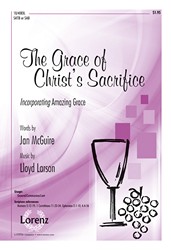- |
User Links
Let us, the sheep by Jesus named
Let us, the sheep by Jesus named
Author: John CennickTune: NEW BRITAIN
Published in 11 hymnals
Representative Text
1 Let us, the sheep by Jesus named
Our Shepherd's mercy bless;
Let us, whom Jesus hath redeemed
Show forth our thankfulness.
2 Not unto us, to thee alone,
Be praise and glory given;
Here shall thy praises be begun,
But carried on in heaven.
3 The hosts of spirits now with thee,
Eternal anthems sing;
To imitate them here, lo! we
Our hallelujahs bring.
4 Had we our tongues like them insired,
Like theirs our songs should rise;
Like them we never should be tired,
But love the sacrifice.
5 Till we this veil of flesh lay down,
Accept our weaker lays;
And when, O Lord, we reach thy throne,
We'll join in nobler praise.
The Christian's duty, exhibited in a series of hymns, 1791
Author: John Cennick
 John Cennick was born at Reading, Berkshire, in the year 1717. He became acquainted with Wesley and Whitefield, and preached in the Methodist connection. On the separation of Wesley and Whitefield he joined the latter. In 1745, he attached himself to the Moravians, and made a tour in Germany to fully acquaint himself with the Moravian doctrines. He afterwards ministered in Dublin, and in the north of Ireland. He died in London, in 1755, and was buried in the Moravian Cemetery, Chelsea. He was the author of many hymns, some of which are to be found in every collection.
--Annotations of the Hymnal, Charles Hutchins, M.A. 1872.… Go to person page >
John Cennick was born at Reading, Berkshire, in the year 1717. He became acquainted with Wesley and Whitefield, and preached in the Methodist connection. On the separation of Wesley and Whitefield he joined the latter. In 1745, he attached himself to the Moravians, and made a tour in Germany to fully acquaint himself with the Moravian doctrines. He afterwards ministered in Dublin, and in the north of Ireland. He died in London, in 1755, and was buried in the Moravian Cemetery, Chelsea. He was the author of many hymns, some of which are to be found in every collection.
--Annotations of the Hymnal, Charles Hutchins, M.A. 1872.… Go to person page >Text Information
| First Line: | Let us, the sheep by Jesus named |
| Author: | John Cennick |
| Language: | English |
| Copyright: | Public Domain |
Notes
Let us the sheep in Jesus named. J. Cennick. [Praise to Jesus, the Good Shepherd.] Published as a "Hymn of Praise in a Dialogue," in his Sacred Hymns for the Use of Religious Societies, Bristol, 1743, Pt. i., No. iv., in 5 stanzas of 4 lines; and again, in the same year, in his Sacred Hymns for the Children of God in the Days of their Pilgrimage, Lond., 1743. This, in common with all Dialogue hymns with the Moravians, was sung antiphonally, the men taking the first half of each verse, and the women the second. The opening stanzas of this hymn are thus printed for antiphonal singing:—
1. "Let us the Sheep in Jesus nam'd,
Our Shepherd's Mercy bless:
Let us, whom Jesus hath redeem'd,
Shew forth our Thankfulness.
2. "Not unto us! to Thee alone,
Bless'd Lamb, be Glory giv'n;
Here shall Thy Praises be begun,
But carried on in Heaven."
In its original form this hymn is unknown to the modern collections, but, beginning with st. ii., as:—
"Not unto us! but Thee alone,
Bless'd Lamb, be glory given,"
it appeared in Rippon's Baptist Selection, 1787, No. 384, and is found in several modern hymnals in Great Britain and America, including the Baptist Psalms & Hymns, 1858 and 1880, Spurgeon's Our Own Hymn Book, 1866, and others. The first stanza of the hymn, "Not unto us but to Thy name" (q.v.), is also from this hymn. [William T. Brooke]
--John Julian, Dictionary of Hymnology (1907)
Tune
NEW BRITAINNEW BRITAIN (also known as AMAZING GRACE) was originally a folk tune, probably sung slowly with grace notes and melodic embellishments. Typical of the Appalachian tunes from the southern United States, NEW BRITAIN is pentatonic with melodic figures that outline triads. It was first published as a hy…


 My Starred Hymns
My Starred Hymns







